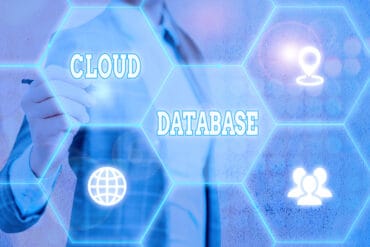
In this week’s real-time analytics news, Lenovo and Databricks are teaming up to increase the use of GenAI.
Keeping pace with news and developments in the real-time analytics and AI market can be a daunting task. Fortunately, we have you covered with a summary of the items our staff comes across each week. And if you prefer it in your inbox, sign up here!
Lenovo has partnered forces with Databricks to drive AI adoption amongst its customers. As a Databricks Consulting & Systems Integration (C&SI) Select Tier Partner, Lenovo will work with businesses to help them take advantage of enhanced data management capabilities, streamlining access to data from multiple sources and removing barriers to successful AI usage.
Working with the Databricks Data Intelligence Platform, Lenovo will help businesses to bring their data sources together, allowing them to increase the use of generative AI, improve their data analytics capabilities, and drive innovation. The Lenovo AI Center of Excellence (AI CoE) will provide services to help customers define outcomes and rapidly innovate with the Databricks Platform to meet the unique needs of their organization.
NVIDIA announced major advancements to Universal Scene Description, or OpenUSD, that will expand the adoption of the universal 3D data interchange framework to robotics, industrial design, and engineering and accelerate developers’ abilities to build highly accurate virtual worlds for the next evolution of AI.
The new offerings include NVIDIA NIM microservices for AI models that can generate OpenUSD language to answer user queries, generate OpenUSD Python code, apply materials to 3D objects, and understand 3D space and physics to help accelerate digital twin development. In addition, new USD connectors to robotics and industrial simulation data formats and developer tools let users stream massive, fully NVIDIA RTX ray-traced datasets to Apple Vision Pro.
Other real-time analytics news in brief
Anaconda announced the public beta release of Anaconda Code within its Anaconda Toolbox for Excel. Anaconda Code empowers users to write Python code directly within Excel and run it locally. Running code locally provides users flexibility and control over their Python environments, eliminating the need to wait for network communication and keeping all code and data within the workbook.
Aporia announced a partnership with Portkey, a provider of AI gateway solutions, to integrate Aporia’s state-of-the-art LLM Guardrails directly onto Portkey’s Gateway. This collaboration empowers Portkey’s community to drastically enhance the security and reliability of generative AI (GenAI) applications for Portkey’s community, allowing them to utilize AI to the fullest while adhering to stringent security standards.
Astronomer, the company behind Astro, the fully managed service for Apache Airflow, announced its latest platform release. The latest additions to Astro include new capabilities that will allow enterprises to improve pipeline resilience and increase release velocity while also hardening security. Most notably, Astronomer is adding support for dbt on Astro, which marks the platform’s first expansion beyond Airflow.
ClickHouse announced the acquisition of PeerDB, a provider of change data capture (CDC) solutions for Postgres databases. With PeerDB CDC technology integrated into ClickHouse Cloud, users will benefit from seamless, real-time data replication from Postgres databases to ClickHouse.
Couchbase enhanced its vector search capability with new caching offerings via a dedicated LangChain package for improved efficiency, relevance, and personalization of LLM responses. Developers can now easily implement Couchbase’s advanced capabilities – like semantic caching – into GenAI workflows for streamlined app development. The LangChain-Couchbase package includes vector search, semantic cache, standard cache, and conversation cache.
CrateDB announced a strategic partnership with Taleo Consulting, a consulting firm specializing in financial services and insurance solutions. Together, they will deliver data management and analytics solutions to companies in the banking, insurance, and asset management sectors.
Datadog announced that it has become a premier member of the Open Source Security Foundation (OpenSSF), reinforcing its dedication to enhancing the security of the open source software supply chain. OpenSSF is hosted by the Linux Foundation. Datadog joins other OpenSSF premier members, including Amazon Web Services, Apple, Capital One, Cisco, Citi, Dell Technologies, Ericsson, GitHub, Google, Huawei, Intel, IBM, JPMorgan Chase & Co., Microsoft, Morgan Stanley, Red Hat, and Sonatype.
Hazelcast announced the introduction of vector search in the latest release of its flagship product, Hazelcast Platform. The introduction of vector search in the Hazelcast Platform enables enterprises to deploy a high-performance pipeline to query structured and unstructured data. It offers the flexibility to generate vector data structures and embeddings from text plot summaries, delivering new efficiencies for data scientists to provide data insights.
InterVision announced a strategic partnership with Bridgetower Capital to launch robust, secure, and scalable global Artificial Intelligence (AI) and Blockchain solutions and services. The solutions will include AI modeling, building and training LLM, and AI-driven data analytics. This partnership will also focus on enhancing InterVision’s AI-driven platforms, a suite of GenAI accelerators built for improved CX and developed for rapid customization and deployment.
Kore.ai announced Express for its XO (Experience Optimization) Platform. Kore.ai’s XO Express approach brings advanced conversational capabilities within the reach of smaller businesses. In particular, the new XO Express approach provides a simplified and approachable way for non-technical users in smaller businesses to leverage the full power of XO Automation for creating AI chatbots and deploying a highly affordable contact center through XO Contact Center AI.
Lightrun announced the launch of a Runtime Autonomous AI Debugger, which is now available in private beta. By automating the entire debugging journey – from the initial ticket to pinpointing the exact culprit line of code in the IDE – Lightrun liberates developers from the endless cycle of troubleshooting. This approach redefines observability and software debugging by saving developers from spending their time on troubleshooting and cuts the operational MTTR of production incidents to mere minutes.
MinIO unveiled MinIO DataPod – a reference architecture for building data infrastructure to support exascale AI and large-scale data lake workloads. Specifically, MinIO’s infrastructure blueprint makes it simple and straightforward for Infrastructure administrators to set up the required commodity off-the-shelf hardware with MinIO enterprise object store, resulting in improved overall time-to-market and faster time-to-value from AI initiatives across organizations within the enterprise landscape.
Oracle Cloud Infrastructure (OCI) announced NVIDIA L40S GPU bare-metal instances available to order and the upcoming availability of a new virtual machine accelerated by a single NVIDIA H100 Tensor Core GPU. This new VM expands OCI’s existing H100 portfolio, which includes an NVIDIA HGX H100 8-GPU bare-metal instance. Paired with NVIDIA networking and running the NVIDIA software stack, these platforms deliver powerful performance and efficiency, enabling enterprises to advance generative AI.
Perforce Software announced the availability of the latest version of its static analysis tools. The new release provides enhanced security and maximum CI/CD process flexibility for safety-critical development projects. With this release, Perforce now offers CI/CD integration capabilities, providing maximum flexibility for modern development practices. Support also extends to analysis jobs running in cloud-based CI pipelines, containerized build tasks, and integration into different CI/CD platforms via the built-in Web API.
Piwik PRO announced the release of its new real-time dashboards feature, which is now an integral part of the Piwik PRO Analytics Suite platform. Dashboards empower users to act on data by providing insights into their operations, performance, and progress on key metrics via visualizations delivered within seconds. It’s particularly beneficial for marketing departments in industries where timely decision-making is critical, such as publishing, eCommerce, event-related businesses, healthcare, and finance.
Qlik announced the general availability of Qlik Answers, a self-service AI solution designed to help organizations harness the power of AI. Qlik Answers combines generative AI with Qlik’s data analytics capabilities to deliver precise, contextually relevant results from extensive unstructured data sources. This solution enables customers to seamlessly integrate AI into their existing Qlik business intelligence workflows, ensuring efficient use of resources and avoiding technical debt.
Sonar has expanded its SonarCloud offering with the availability of two new plans, SonarCloud Enterprise and SonarCloud Team. SonarCloud is the company’s fully managed SaaS solution for improving the quality and security of human-developed and AI-assisted code at scale. With the new Enterprise and Team plans for SonarCloud, Sonar empowers development teams of all sizes to deliver Clean Code with confidence.
Tamr announced the launch of Tamr RealTime, a set of new features for its AI-native master data management platform that allows organizations to rapidly build and maintain accurate, up-to-date data that improves operational efficiency. Tamr RealTime builds upon the company’s expertise in data mastering and quality. It not only improves the accuracy and timeliness of data but also empowers organizations to be more agile and responsive.
Vultr announced that Run:ai is the latest partner to join its Cloud Alliance. Run:ai’s advanced AI workload orchestration platform, coupled with Vultr’s robust, scalable cloud infrastructure — including Vultr Cloud GPUs, accelerated by NVIDIA computing technologies and Vultr Kubernetes Engine — provides the enhanced computational power needed to accelerate AI initiatives across Vultr’s global network of cloud data center locations.
Zendata announced the launch of its Advanced AI Model and Data Usage Scanning platform. The offering delivers comprehensive governance, bias detection, and compliance capabilities across entire AI and data ecosystems, addressing the growing need for transparent and responsible AI deployment in enterprises.
If your company has real-time analytics news, send your announcements to ssalamone@rtinsights.com.
In case you missed it, here are our most recent previous weekly real-time analytics news roundups:
- Real-time Analytics News for the Week Ending July 27
- Real-time Analytics News for the Week Ending July 20
- Real-time Analytics News for the Week Ending July 13
- Real-time Analytics News for the Week Ending June 29
- Real-time Analytics News for the Week Ending June 22
- Real-time Analytics News for the Week Ending June 15
- Real-time Analytics News for the Week Ending June 8
- Real-time Analytics News for the Week Ending June 1
- Real-time Analytics News for the Week Ending May 25






























